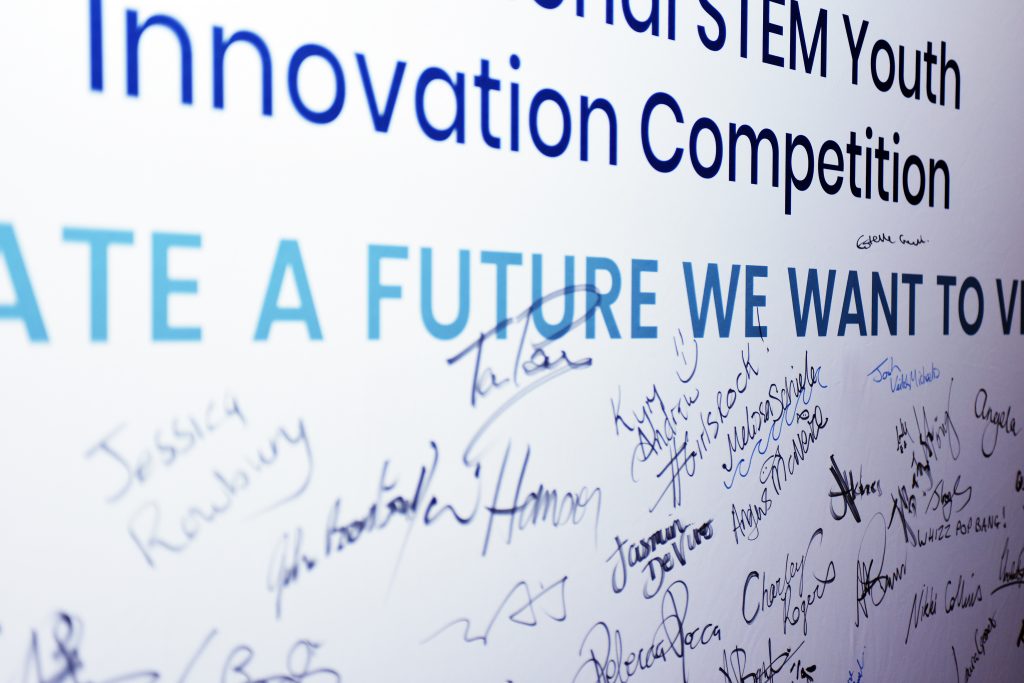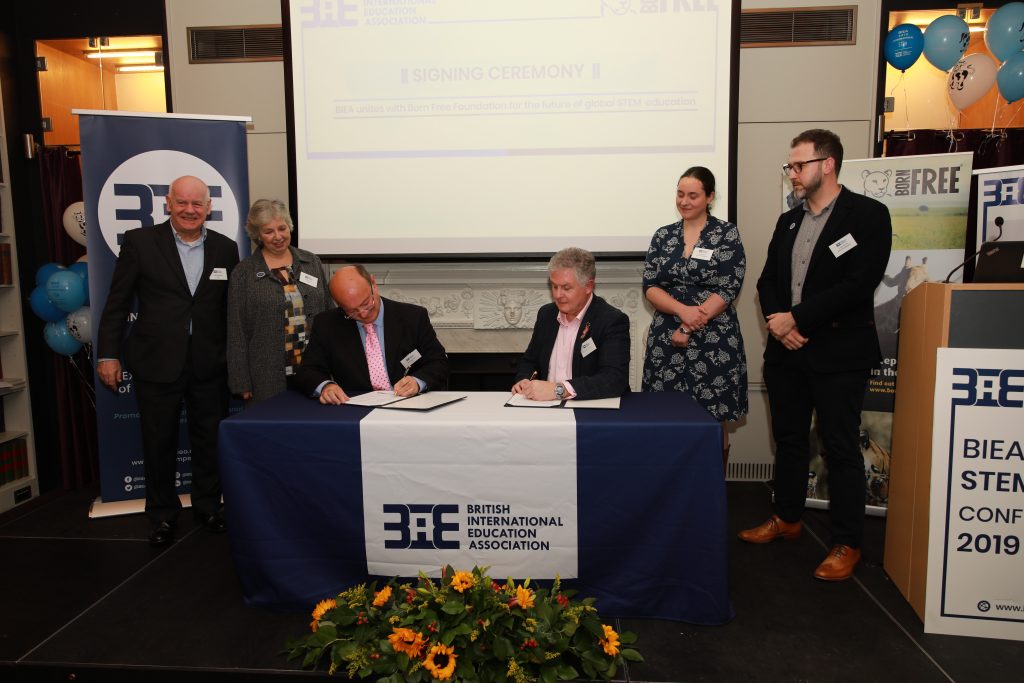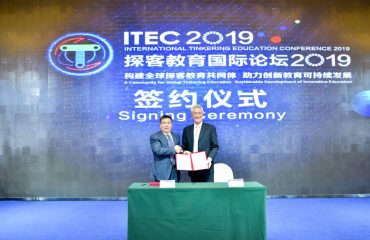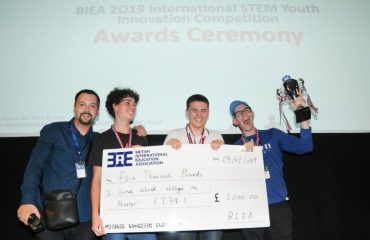
On the 15th of January 2019, the 2nd annual International STEM Youth Innovation Competition was officially opened at a ceremony at London’s prestigious Royal Institution (Ri). The British International Education Association (BIEA) alongside its partner, the Born Free Foundation (BFF) announced the competition before an audience made up of educators, STEM professionals, members of industry and invited dignitaries. Working with the support of the British Science Association (BSA), the Royal Institution (Ri), Engineering UK and the Royal Airforce Museum (RAF Museum), BIEA called out for students around the world to get involved and sign up to take part.

Participating in the forum were prominent organisations such as the Department for International Trade (DiT), Embassy of China, the Born Free Foundation, Independent Association of Prep Schools (IAPS), New Scientist, Zoological Society of London (ZSL), the British Council, Microsoft, Tata Consultancy Services and more. Nearly 20 media outlets attended the conference including the BBC, China Daily, National Geographic, The Week, Computer Weekly and the European Times.
The conference featured presentations by Dr. Joshua Veitch-Michaelis (researcher) on machine learning and drone technology and its applications to wildlife observation, Dr. Alex Holmes (Head of STEM) from BIEA on how to teach STEM skills, Melissa Schiele on the use of water landing drones and marine conservation and final presentation by Dr. Liz Greengrass (Head of Conservation) and Howard Jones (CEO) on the work of the Born Free Foundation and their use of technology in conservation. The second half of the event featured a panel discussion based around how to engage young people in STEM careers and featured Sarah Hedley (National Skills Lead) Microsoft, Dr. Shaun Fitzgerald Director of the Royal Institution, Jane Dowden (Education Innovation Manager) from the British Science Association (BSA) and Adrian Fenton (Science Advisor: STEM and Public Engagement) from the British Council. The discussion was moderated by Penny Sarchet (News Editor) New Scientist Magazine. The general consensus of the panel was the STEM outreach activities from organisations like Microsoft, the Ri and the BSA (amongst others) have had a positive impact in allowing young people to have fun whilst they engage with role models from industry and finding out about STEM careers in the real world. It was generally agreed that the fun part of STEM school-based activities should be recognised as translating into potentially ‘fun’ careers for those with a STEM background. The panel also agreed that parents and teachers needed to be kept updated with the eclectic mix of jobs and careers that come with a STEM background – careers that are not, in the words of Jane Dowden, “just teaching and research” for science graduates. Finally, it was agreed that alongside inspiration, activities should also encourage aspiration for young people to engage with STEM opportunities.
The theme of the 2019 competition is fighting extinction through technology and aims to inspire students around the world to use their STEM skills to solve global problems. With Bornfree Foundation as BIEA’s partner in Over 73 student teams from 17 countries have already pre-registered for the 2019 event and BIEA looks forward to welcoming even more as the registration phase will continue until the 31st of March 2019.

The competition was officially launched after a speech by Geoff Gladding, Head of Education at the Department for International Trade who thanked BIEA for helping British education leave a footprint around the world. Second, to speak Wang Yongli, Minister Councillor for Education at the Chinese Embassy who spoke about the difficulties encountered by the Chinese approach to STEM and how to improve it through creativity, he hoped that the competition would provide an opportunity for young people from the world including China to better engage in STEM and build new friendships. Finally, both Mr. Gladding and Mr. Wang took part in the final ribbon cutting ceremony in which BIEA STEM Chair David Hanson announced the competition officially open alongside Gareth Bullock (President of BIEA), Laura Gosset (Head of Education) from the Born Free Foundation and Andrew Holmes OBE.

BIEA received a fantastic reaction across its social media channels including Twitter, Instagram and Facebook with support coming from The Week Junior, Science + Nature Magazine and guests including ex-MP Neil Carmichael and STEM Learning Regional Lead for London & South-East Ajay Sharman.
BIEA hopes to nurture STEM skills and passions in students globally to tackle the ever-growing skills gap between the number of STEM graduates and the number of STEM jobs that need to be filled. With a majority of global economies investing heavily in STEM education and related industries, it has never been more important for young people to get involved and build a passion for STEM. Working specifically with drone technology, the competition will help students build an appreciation for STEM as they work to solve the pressing issue of how to protect endangered animals from the threat of extinction. Students will work across a multidisciplinary set of challenges between the launch of the competition and the final event on the 4th of July 2019, including report writing, design and construction, presenting, editing, research and technical skills. Through the competition, students will increase their teamwork, independent research and critical thinking skills as well as see the applications of STEM outside of the classroom.
Students will have the chance to meet their peers from around the world at the final event which will take place on the 4th of July at the RAF Museum in London. They will have the chance to show off their work to expert judges and members of the public as well as to fly drones through an obstacle course and be in with a chance to win the £5000 grand-prize. All students taking part will also be eligible for the silver CREST Award from the British Science Association.
Can you save a species through technology? Sign your team up today and create a future that we want to visit.
At the time of publication, 73 teams from 59 schools had successfully pre-registered from 17 countries.



